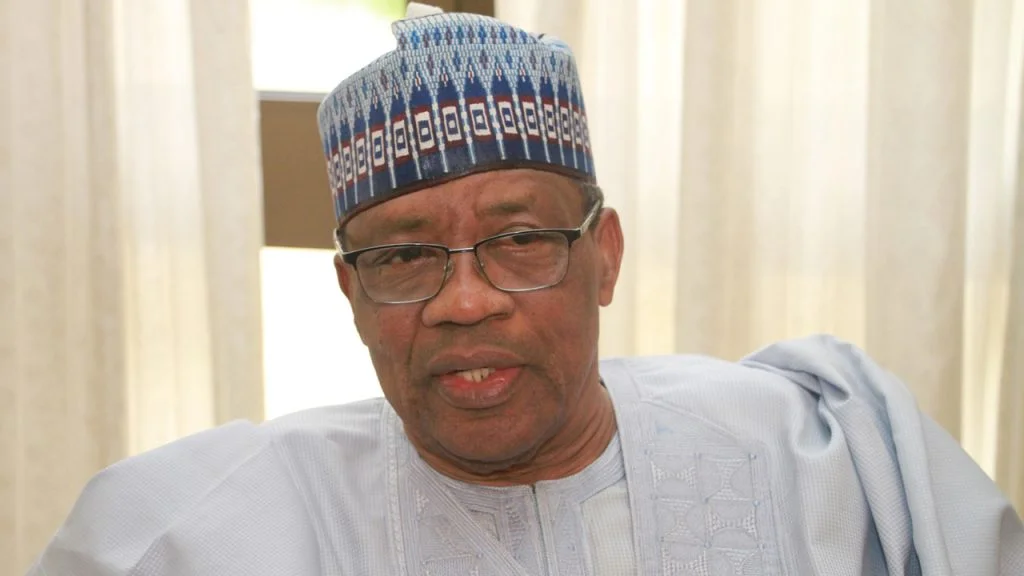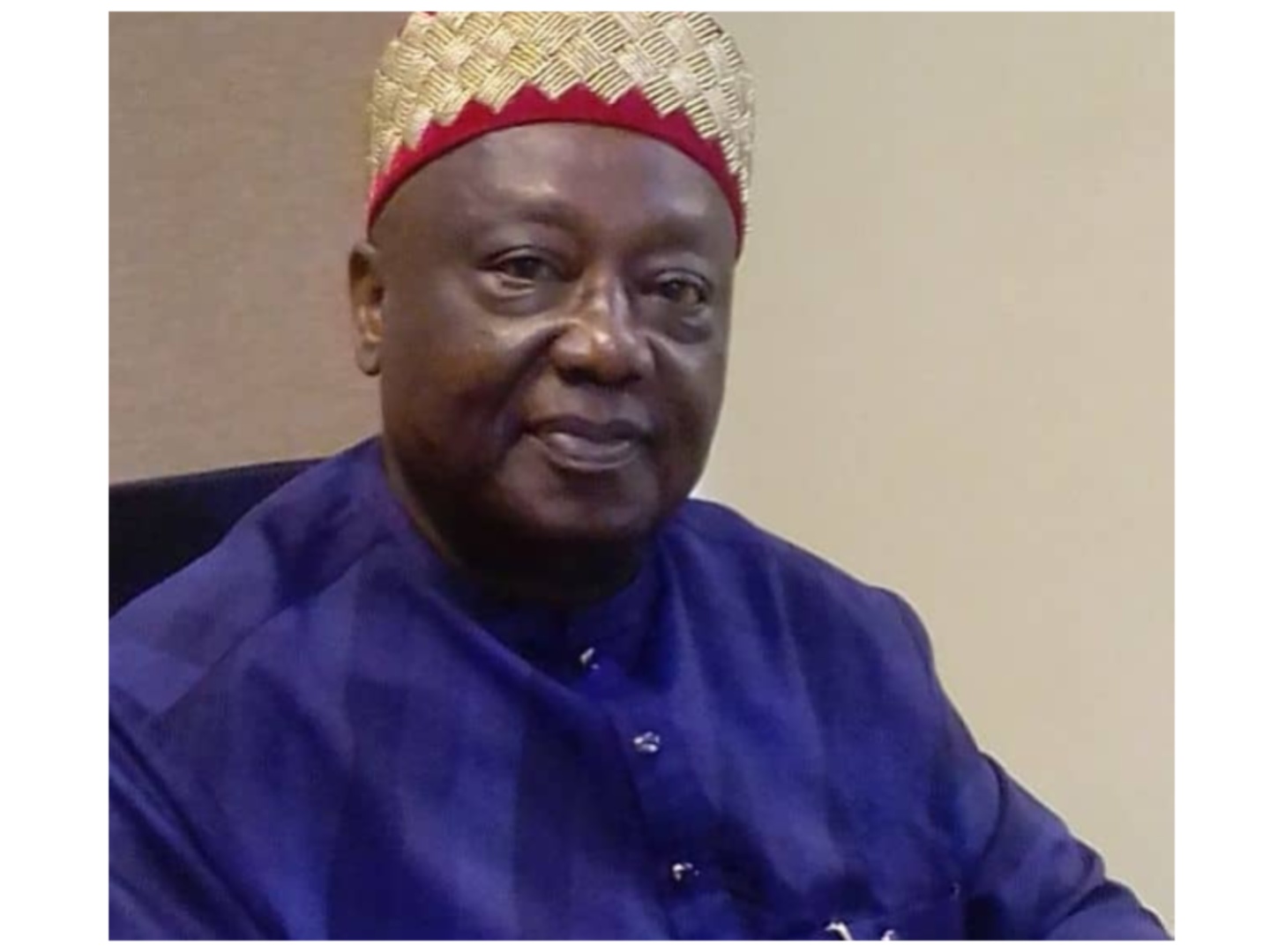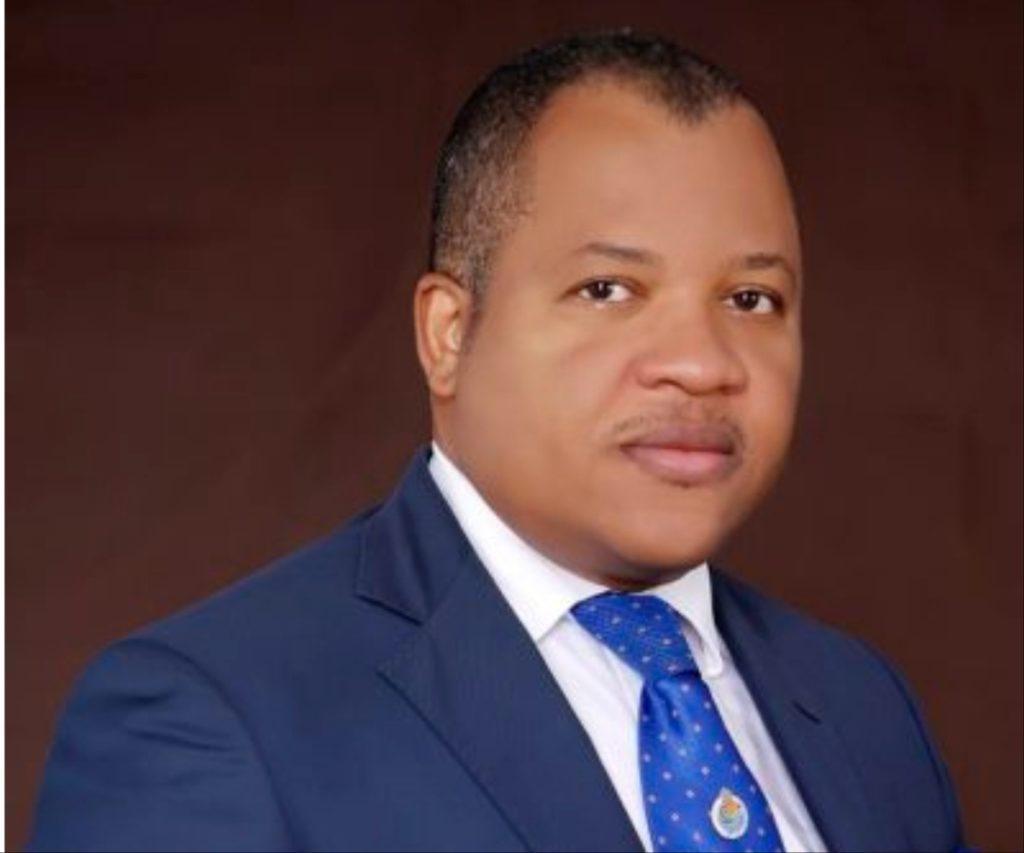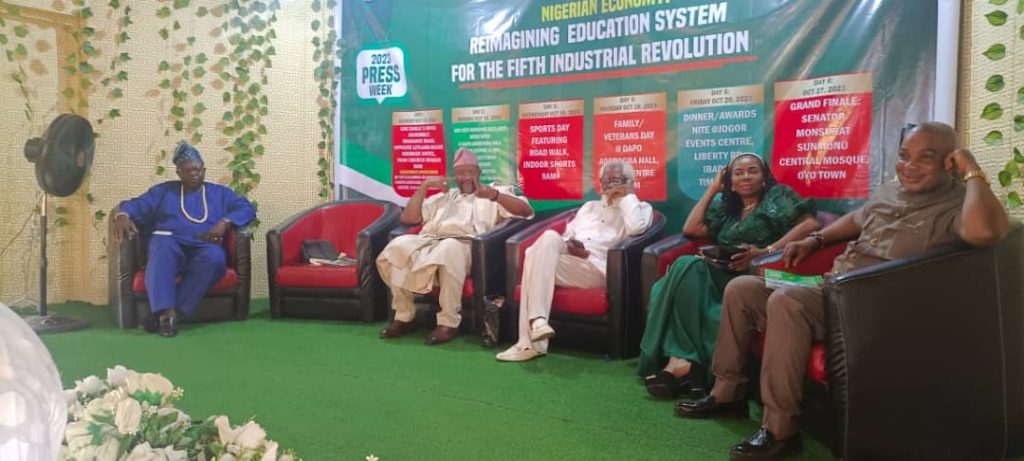Interview
INTERVIEW: Fighting against my friends during civil war a sad experience – Babangida

His Excellency, General Ibrahim Badamasi Babangida (rtd), a former military head of state, spoke in an interview with Search FM, a Campus Radio, covering various aspects of his life, military service, and the civil war. The interview was monitored by Priscilla Dennis, a correspondent from DAILY POST.
Reflecting on his upbringing in Niger State (formerly the Niger province), General Babangida noted that he was born in Minna in 1941 and completed his primary and secondary education in Minna and Bida, respectively. He then pursued military training at the Nigerian Military Training College in Kaduna, Military Academy in India, and other military institutions.
When asked about his decision to enlist in the military, General Babangida explained that a deliberate government policy aimed to increase Northern representation in the military, leading to invitations extended to the younger generation from secondary schools.
Recalling his experience during the Nigerian civil war, General Babangida expressed the discomfort of facing friends and schoolmates on opposing sides. He emphasized the purpose of the war was to unite the country, not to divide it.
If not for his military career, General Babangida disclosed that he aspired to be a civil engineer. Regarding his leadership style, he emphasized the importance of studying and understanding human behavior, combining compassion with sometimes necessary ruthlessness to achieve goals.
In retirement, General Babangida mentioned his enjoyment of watching children grow. Reflecting on his achievements, he prioritized serving the country to the best of his ability, fostering good relations with the people, and gaining extensive knowledge of the country through travel.
Addressing young people, he advised them to understand that they are future leaders and encouraged them to study and know the country. In a lighthearted moment, he commented on a biopic about his life, acknowledging its attempt to provide food for thought but noting areas that could be improved for accuracy.
Interview
INTERVIEW: Nigerians were fooled with Electoral Act amendment – APGA Chair, Obi-Okoye

Chief Ifeatu Obi-Okoye, a seasoned politician with many years of experience, currently serves as the Chairman of the All Progressives Grand Alliance (APGA) in Anambra State. In an interview with DAILY POST’s David Eleke, Chief Obi-Okoye expresses dissatisfaction with the 2022 amended Electoral Act, asserting that it failed to address the public’s expectations. He criticizes the conduct of recent off-season elections in Imo, Kogi, and Bayelsa, suggesting a regression to old practices. The chairman also provides insights into the upcoming 2025 gubernatorial election in Anambra State and addresses challenges faced by APGA in recent elections.
Regarding the electoral process, Chief Obi-Okoye emphasizes the need for substantial reforms to ensure free and fair elections. He criticizes the 2022 electoral act, highlighting its failure to guarantee transparent accreditation of voters. The chairman expresses disappointment in the lack of effective reforms and points to the recent election results in Imo and Kogi as evidence of a return to past irregularities. He urges the National Assembly to address these issues through specific legislations.
Chief Obi-Okoye reflects on APGA’s performance in the last election, acknowledging a decrease in the number of seats in the House of Assembly. He attributes this decline to internal issues, including poorly conducted primaries and intra-party grievances. However, he expresses confidence in the party’s ability to perform better in the next election, citing ongoing efforts to rebuild and address internal challenges.
Addressing criticisms from former governorship candidates Obiora Okonkwo and Ifeanyi Ubah, Chief Obi-Okoye dismisses their opinions, particularly questioning Okonkwo’s political standing based on past electoral outcomes. He defends Governor Soludo’s performance, emphasizing achievements such as road construction, teacher employment, and youth empowerment.
As the Chairman of APGA in Anambra State for six months, Chief Obi-Okoye discusses the challenges faced and the strategies employed to revitalize the party. He mentions rebuilding trust, addressing intra-party grievances, and implementing discipline as key priorities. He also highlights efforts to involve grassroots supporters and support groups in party activities, emphasizing the party’s supremacy.
Looking ahead to the 2025 gubernatorial election, Chief Obi-Okoye downplays concerns about potential challengers to Governor Soludo, asserting that the governor’s focus should remain on good governance. He believes that the governor’s achievements, including infrastructure development, will resonate with voters during the campaign period.
In summary, Chief Ifeatu Obi-Okoye’s interview covers his perspectives on electoral reforms, APGA’s performance, internal challenges, and the party’s strategies for the future, including the upcoming gubernatorial election in Anambra State.
Opinion
INTERVIEW: Why foreign countries see Nigeria as a breeding ground – UUTH CMD, Bassey

In this interview, Professor Ememabasi Bassey, a former Commissioner for Health in Akwa Ibom State and Chief Medical Director of the University of Uyo Teaching Hospital, discusses the causes and effects of brain drain, among other issues. Below are some excerpts:
The recent federal government initiative to recruit medical practitioners – will it effectively address the challenges of brain drain?
I express gratitude to the federal government for initiating recruitment into hospitals. However, recruitment alone is insufficient because, while we are bringing in new professionals, the problem lies in retention. Numerous health professionals, including resident doctors and consultants, are leaving the country regularly. The economic factor plays a significant role. The highest-earning medical doctor in Nigeria’s public service makes around $1000, whereas a junior medical professional in the UK earns about $3000 before tax. This economic disparity makes Nigeria a target for other countries to poach our skilled healthcare professionals.
What are the reasons behind this brain drain phenomenon?
Economic factors are paramount, with the meager salaries in Nigeria being a significant deterrent. The highest-earning doctors in the country cannot match the earnings of their counterparts in the UK or the United States. Lack of job satisfaction, inadequate working environments, and insecurity in some regions further contribute to the exodus of healthcare professionals.
How does brain drain impact your hospital?
The brain drain has affected our hospital, albeit not as severely as some teaching hospitals. Many resident doctors, nurses, and consultants have left. The departure of experienced professionals creates challenges in maintaining the quality of healthcare services.
What challenges do you face as the Chief Medical Director of UUTH?
Our challenges include power supply issues, inadequate infrastructure, financial constraints, and the attitude of staff towards patients. Power supply has been a persistent issue, and though we’ve made efforts to address it, challenges persist. Improving infrastructure has been a success, with the completion of abandoned projects and initiation of new ones. However, financial constraints persist, affecting our ability to procure essential supplies and equipment. Staff attitude towards patients is another challenge, and efforts are underway to improve organizational culture through regular training sessions.
How can the government address these issues, especially brain drain?
Addressing brain drain requires comprehensive policies and a conducive working environment. It involves improving pay structures for healthcare professionals, creating opportunities for career development, and enhancing working conditions. Additionally, discussions at the highest levels should focus on reversing brain drain and encouraging skilled professionals to return to Nigeria.
What are your thoughts on the proposed bill compelling medical professionals to serve for an extended period before leaving the country?
While acknowledging both positive and negative aspects, the bill may infringe on fundamental human rights. However, it could be applicable to individuals on scholarships or student loans. Subsidized medical education in government universities should foster patriotism, discouraging professionals from leaving hastily.
What inspired you to become a medical doctor?
Growing up with a mother who was a nurse and having family friends who were medical doctors, the path to becoming a medical doctor seemed inevitable. Despite excelling in arts, the passion for medicine prevailed, and it became the only career choice.
On the issue of health professionals engaging in private practice at the expense of government facilities:
Engaging in private practice at the expense of government facilities goes against ethical standards. While recognizing the financial challenges faced by civil servants, especially in the health sector, prioritizing private practice over public service is discouraged.
Concerning the frequent strikes by resident doctors:
Strikes, not exclusive to medical doctors, have become a pervasive issue in the Nigerian labor sector. Strikes should be a last resort, but unfortunately, they have become a common first-line action, posing challenges to effective healthcare delivery.
Interview
Irregular sex causing dissolution of many marriages – Counsellor

A marriage counselor, Mrs. Bosede Ola-Samuel, has stated that irregular sexual activity among couples is a significant factor leading to the dissolution of many marriages. Ola-Samuel made this assertion during a lecture titled “Dangers of Irregular Sex” at the 2023 Nigeria Union of Journalists (NUJ) Oyo State council Press Week, held on Thursday.
She pointed out that many women endure their marriages rather than enjoying them, often subjected to irregular and unsatisfactory sexual experiences by their husbands. This, in turn, contributes to the breakdown of many marriages, as some women find it difficult to tolerate.
Ola-Samuel drew a comparison, stating that “many men act like helicopters, ready for immediate takeoff when their engines kick in, while women are like airplanes that require their pilot to kickstart them and taxi for a longer time before taking off.”

She emphasized that the most important sexual organ for women is not their breasts but their minds, highlighting that many wives reject sexual advances from their husbands because they are not aroused by mere visual stimuli, unlike men who tend to be immediately responsive to such stimuli.
She explained that women often only begin to enjoy sexual intimacy when their husbands have completed their “flight” and have “landed.” She referred to the “fire brigade approach” of hurried sexual encounters, which can be a turn-off for many women.

However, Ola-Samuel stressed the health benefits of regular sexual activity for men, particularly in preventing prostate enlargement or cancer, especially in old age.
To promote enjoyable and fulfilling sexual experiences for both husbands and wives, especially during the menopausal stage of a woman’s life, when physical changes occur, Ola-Samuel recommended good communication, romantic gestures, creating a sense of happiness, and helping with household chores. These factors can help women accept and enjoy sex, leading to a more harmonious and loving family environment.
-

 World News7 months ago
World News7 months agoWhat we know about Israel’s war with Hamas
-

 Sports7 months ago
Sports7 months agoLaLiga: Everyone want to play with him – Vinicius on player Real Madrid should sign
-

 World News7 months ago
World News7 months agoIran calls on Islamic, Arab countries to confront Israel
-

 Tech7 months ago
Tech7 months agoTop 10 AI Skills to Learn in 2023
-

 Entertainment7 months ago
Entertainment7 months agoBET Hip-Hop Awards: Black Sherif wins big as Burna Boy loses seven nominations
-

 Entertainment7 months ago
Entertainment7 months ago‘Black Panther’ star Lupita Nyong’o breaks up with boyfriend, Selema Masekela
-

 ICT8 months ago
ICT8 months agoApple Bows To EU, Unveils iPhone With USB-C Charger
-

 World News7 months ago
World News7 months agoZelensky seeks defences for winter on visit to NATO




